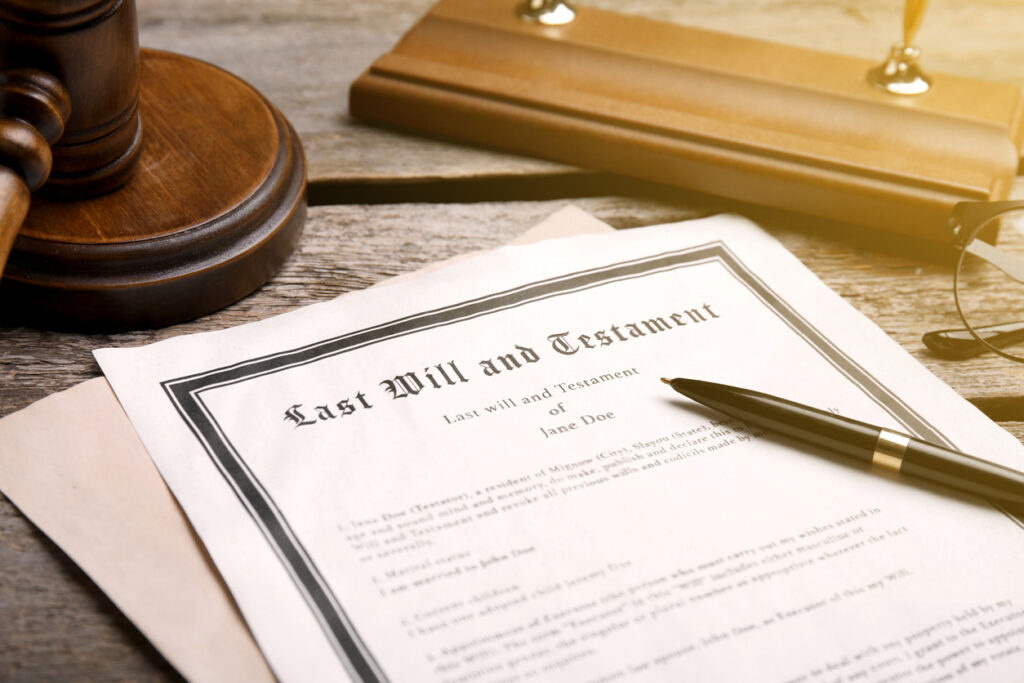How charities can protect legacy income from will drafting errors
Legacies left to charity by will form a significant portion of income for many organisations. This makes it all the more important that the legacies are accurately drafted and received by the intended charity beneficiary on a person’s death. Unfortunately, problems can arise from drafting errors, which can lead to a court being asked to determine the question as to who should benefit.
Case: Dryden v Young & Others (2024)
The decision in the case of Dryden v Young & Others (2024) provides clarification as to how the courts approach cases where legacies to charities are ambiguous due to, for example, the misspelling of names and addresses, or where there have been changes to an organisation’s structure since the will was prepared, leading to issues over the identity of the intended recipient.
The case of Dryden involved the estate of the late Marjorie Thompson who died in April 2020, leaving a will made in May 2016. Under the terms of her will, she divided her estate equally between 15 organisations. About seven of these were unclear.
The court therefore had to consider:
- whether the gift in the will failed; and/or
- who the gift could be paid to, or whether it passed under the rules of intestacy to Mrs Thompson’s relatives.
The decision-making process
Generally, the courts prefer, so far as is possible, to give effect to gifts which were intended to have charitable purpose, rather than passing on intestacy. When doing so, the court looks to the law governing the interpretation and construction of wills and charities.
Firstly, the court needs to interpret the wording used to identify the recipient. If the gift is to an apparent charity, it is necessary to see if the gift is to an entity which existed at the date of the will and what sort of entity it is.
If there is no such entity, or it is unclear which entity is meant, then the next question is whether the gift can be considered a general gift for charitable purposes, in which case the principles of Cy-Pres will be applied.
Briefly, the principles of Cy-Pres apply where there has been a failure of a charitable gift, the Charity Commission or the Court can direct that the funds in question can be applied to other, closely related, charitable purposes.
What was the outcome?
After a detailed review of the applicable legal principles, the court upheld all seven gifts, thus avoiding the estate passing on intestacy.
However, it also reflects the desire of the court, as far as possible, to give effect to gifts in wills which were clearly made for charitable purposes, even if the drafting left quite a lot to be desired.
How this case impacts charities
The Dryden case is a helpful reminder that courts will do their best to uphold gifts intended for charitable purposes – even where a will contains errors or ambiguities. However, relying on court intervention is costly, time-consuming, and avoidable.
To reduce the risk of missed legacies, or uncertainty over intended beneficiaries, charities should:
- Review how they are described in legacy materials (including suggested wording for supporters’ wills)
- Ensure up-to-date information is readily available to potential donors and their advisors
- Seek legal advice where there is any uncertainty over a gift’s validity or the identity of the intended recipient
We work closely with charities to protect their legacy income. From advising on the correct wording for gifts, to resolving disputes over unclear bequests, our team is here to help protect your organisation’s future. Speal to our charities team for tailored support on managing and protecting your legacy income.







